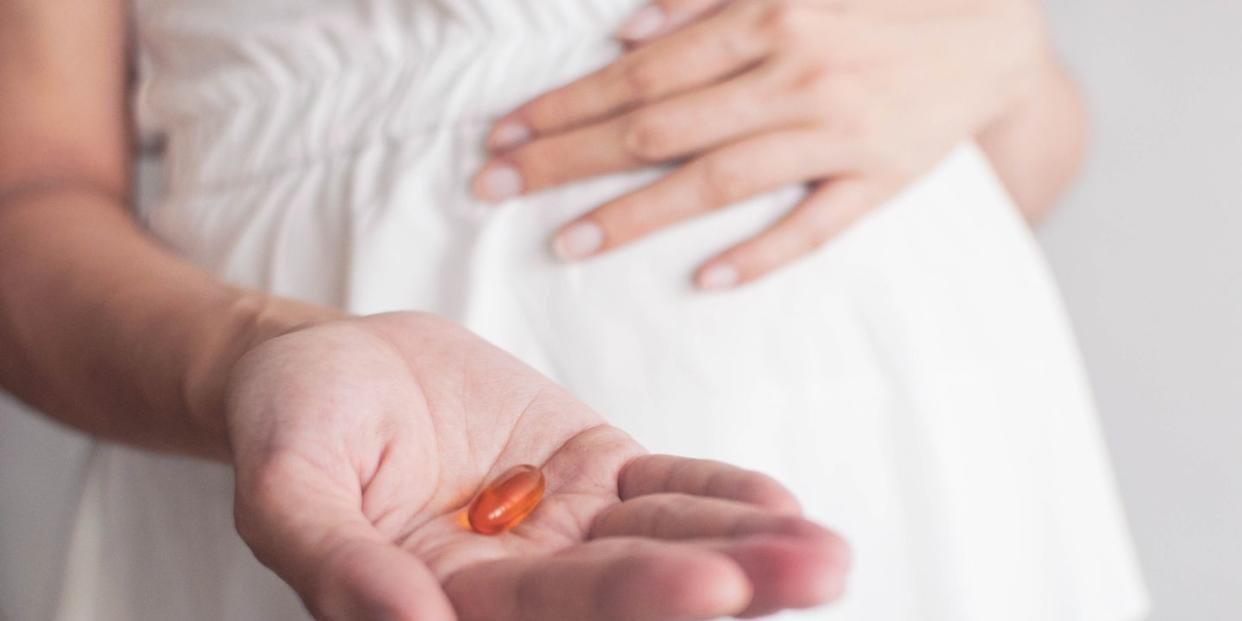Experts explain why taking folic acid during pregnancy is so important, and the ideal time to start

The best nutrition is personal - that's true when pregnant, post-partum and at pretty much every other time of life, too, as what you like and need will be different from any other person. But, there is one piece of pregnancy nutrition advice that remains consistent across the board, and that's getting enough folic acid and folate.
Folic acid and vitamin D are actually the only nutrients the NHS recommends everyone take during pregnancy - although other supplements can be useful for individuals depending on their needs.
'Folic acid is the synthetic form of folate, or vitamin B9, which is found naturally in foods,' explains dietitian Nichola Ludlam-Raine. And she's here to explain exactly what folic acid does in pregnancy that makes it so vital.
What is folic acid for?
'Folate is a water-soluble vitamin that is crucial for producing and maintaining new cells, making DNA and RNA, and preventing unwanted changes to DNA. It’s essential for everyone at every stage of life and as it's water-soluble our body cannot store it, so we have to have it daily.'
During pregnancy, your body requires more folate to support the body's rapid growth, which is why supplementing with folic acid is essential. 'Folic acid plays a pivotal role in reducing the risk of neural tube defects (NTDs) in developing foetuses. These defects can affect the brain and spinal cord, leading to conditions such as spina bifida (issues of the spine) and anencephaly (issues in the brain), which are severe developmental anomalies that can cause disability,' explains Ludlam-Raine.
How to take folic acid during pregnancy
Non-pregnant adults tend to need around 200 micrograms of folate a day, but this increases to 400 micrograms for pregnant people. And, as mentioned, the best way to ensure you get enough folate to support the body during pregnancy is to supplement.
'While it’s possible to obtain folate from food - particularly dark leafy greens like spinach and kale, citrus fruits, nuts, beans, peas, poultry, meat, eggs, seafood, lentils and grains - achieving the necessary levels through diet alone can be challenging, especially during pregnancy,' explains Ludlam-Raine. 'This is why many breads and breakfast cereals are fortified with folic acid and recommended for everyone, and why pregnant people are advised to supplement.'
Ludlam-Raine also advises that some people may need a higher dose prescribed by their doctor, so it's always important to check in with your healthcare team before and during pregnancy.'
When to start taking folic acid for pregnancy?
Ideally, you should start supplementing with folic acid before conception. 'Ideally you would be taking folic acid three months before conception and continuing through the first 12 weeks of pregnancy as a minimum,' says Ludlam-Raine.

The many people who haven't planned their pregnancy or known about the need to supplement before becoming pregnant shouldn't worry, though: 'There is nothing to worry about - the advice would be to start the 400mcg folic acid tablet as soon as possible and to consume a diet rich in folate as tolerated,' explains Ludlam-Raine.
What happens if I don't take enough folic acid in pregnancy?
A folic acid deficiency can be hard to spot, says Ludlam-Raine, which is another reason why having doctors checking in on your health while pregnant is so important. 'Symptoms may include fatigue, mouth sores, a sore or red tongue and changes to mood and memory. However, during pregnancy, a lack of adequate folic acid can lead to more severe consequences like neural tube defects in the newborn, so it’s vital for pregnant individuals to monitor their folic acid intake closely,' says Ludlam-Raine.
The best folic acid supplements for pregnancy
'The best folic acid supplements for pregnancy are those that are specifically labeled as prenatal vitamins as these will contain not only the recommended amount of folic acid but also other vital nutrients, such as iodine, that support pregnancy health and won't contain the retinol form of vitamin A, which is not recommended during pregnancy. These supplements are formulated to ensure that, alongside a healthy diet, the nutrient needs of both the mother and the developing baby are met,' explains Ludlam-Raine.
More pregnancy stories...
You Might Also Like


